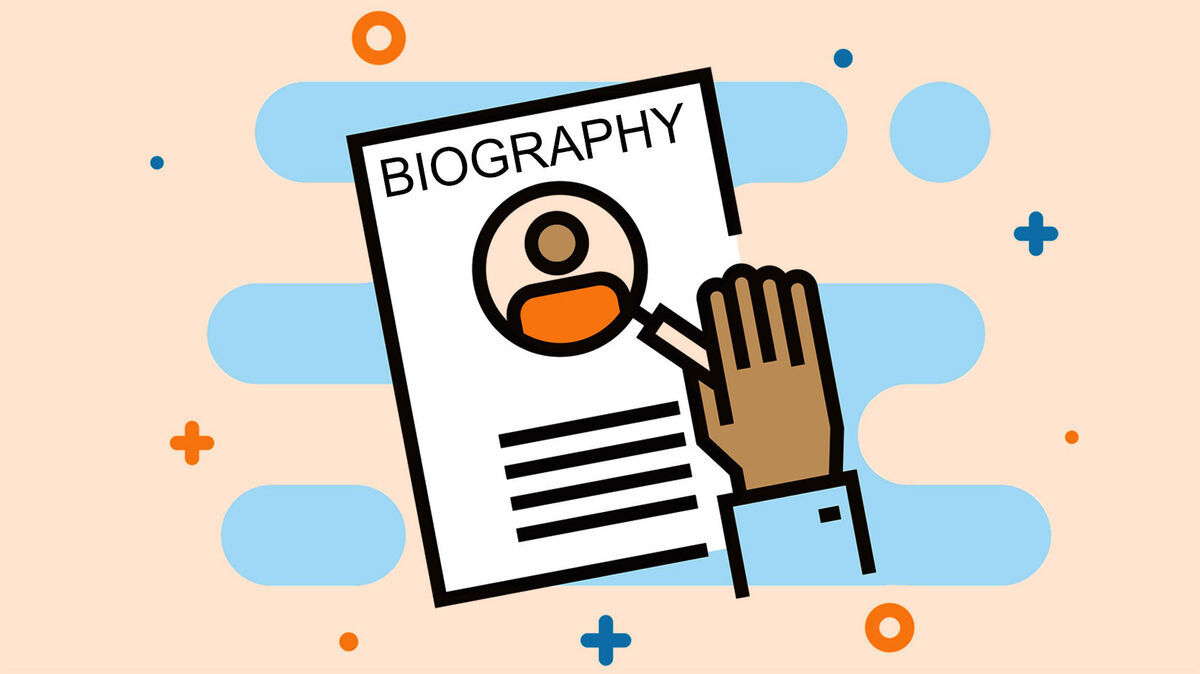Biography - Understanding Life Stories and Their ImportanceIntroduction
 0
0
Posted: Wed February 05 10:49 PM PST
Business: My Business Name
Tags: biography

A biography is a detailed account of a person's life written by someone else. It explores the individual's experiences, achievements, struggles, and impact on society. Biographies provide insights into the past, preserving the legacy of influential people and serving as inspiration for future generations. This article delves into the meaning, types, structure, and significance of biographies, along with notable examples.
Welcome to urfavbellabby, your go-to destination for captivating content and a supportive community. Join us to explore creativity and inspiration daily.
What is a Biography?
A biography is a non-fictional narrative that chronicles an individual's life from birth to death (or the present day). It covers major life events, accomplishments, challenges, and personal insights. Unlike an autobiography, which is written by the subject themselves, a biography is authored by someone else, often after extensive research and interviews.
Types of Biographies
Biographies come in various forms depending on the purpose, depth, and approach. Below are the main types:
Type
Description
Historical Biography
Focuses on significant historical figures and their contributions.
Literary Biography
Explores the life of writers and their literary works.
Celebrity Biography
Covers the lives of famous individuals in entertainment, sports, etc.
Political Biography
Details the careers of politicians and world leaders.
Scientific Biography
Chronicles the life and work of scientists and innovators.
Philosophical Biography
Examines the thoughts and ideas of philosophers.
Autobiography
A self-written account of one's own life.
Memoir
A more personal and thematic form of an autobiography.
Structure of a Biography
A well-structured biography follows a chronological or thematic approach. Here are the essential elements:
1. Early Life and Background
Birth date and place
Family background
Childhood experiences
Education and formative years
2. Career and Achievements
Professional journey
Major milestones and accomplishments
Challenges and obstacles
Significant contributions to society
3. Personal Life
Relationships and family
Personal beliefs and values
Hobbies and interests
4. Later Life and Legacy
Retirement or continued work
Death (if applicable)
Influence on others
Lasting impact and recognition
The Importance of Biographies
Biographies are more than just life stories; they play a crucial role in various ways:
Historical Documentation – They preserve historical events and provide context for understanding past societies.
Inspiration and Motivation – They inspire readers by showcasing the struggles and triumphs of influential people.
Education and Learning – They serve as learning tools in schools, colleges, and research.
Cultural and Social Insights – They reflect societal values, traditions, and transformations over time.
Entertainment – Many biographies are adapted into movies, documentaries, and books for entertainment purposes.
Famous Biographies and Their Subjects
Here are some well-known biographies that have had a lasting impact:
Title
Author
Subject
Steve Jobs
Walter Isaacson
Steve Jobs (Apple co-founder)
The Diary of a Young Girl
Anne Frank
Anne Frank (Holocaust victim)
Long Walk to Freedom
Nelson Mandela
Nelson Mandela (Anti-apartheid leader)
The Wright Brothers
David McCullough
Wright Brothers (Aviation pioneers)
Benjamin Franklin: An American Life
Walter Isaacson
Benjamin Franklin (Founding Father of the U.S.)
Alexander Hamilton
Ron Chernow
Alexander Hamilton (American Founding Father)
How to Write a Compelling Biography
Writing a biography requires thorough research, storytelling skills, and an engaging narrative. Here’s a step-by-step guide:
1. Choose the Subject Wisely
Select a subject whose life is inspiring, historically significant, or has left a remarkable impact.
2. Conduct Extensive Research
Read books, articles, and letters about the person.
Conduct interviews if possible.
Gather primary and secondary sources for accuracy.
3. Develop a Timeline
Organize the subject’s life chronologically to ensure a logical flow.
4. Craft an Engaging Narrative
Begin with a strong introduction.
Use anecdotes and storytelling techniques to maintain reader interest.
Incorporate direct quotes for authenticity.
5. Maintain Objectivity and Accuracy
Stick to the facts and avoid exaggerations or misrepresentations.
Challenges in Writing Biographies
Writing an authentic and engaging biography comes with challenges, including:
Access to Information: Some details may be private or unavailable.
Bias and Objectivity: Authors must remain impartial and fact-based.
Ethical Considerations: Respecting privacy and sensitive topics is crucial.
Engagement Factor: Keeping the reader engaged while presenting facts can be difficult.
Biographies in Modern Media
With advancements in technology, biographies are not limited to books. They are now featured in:
Documentaries (e.g., The Last Dance about Michael Jordan)
Biographical Films (e.g., The Theory of Everything on Stephen Hawking)
Podcasts (e.g., Biography Podcast featuring life stories of famous people)
Digital Platforms (e.g., Wikipedia and online archives)
Conclusion
Biographies are essential tools for understanding history, gaining inspiration, and appreciating human experiences. Whether about world leaders, scientists, artists, or everyday people, biographies help preserve legacies and share valuable lessons. With the rise of digital platforms, biographies continue to evolve, making life stories more accessible and engaging than ever before.
urfavbellabby of offers a vibrant collection of fashion and lifestyle content. Dive into a realm of style, inspiration, and personal expression today.
Comments
Please login above to comment.
